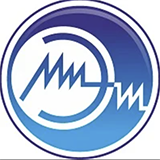Introduction to Moscow Institute of Electronic Technology
The Moscow Institute of Electronic Technology is a top technical university in the field of microelectronics, information and computer technology in Russia. It is also one of the 29 national research universities and is famous for training professionals in the field of electronic technology.
Overview
Student size: 4,556 students and 180 postgraduates in 2020.
Faculty: 375 regular academic staff and 132 part-time academic staff in 2020, including 3 academicians, 3 corresponding academicians of the Russian Academy of Sciences, 95 professors and doctors of science, and 290 associate doctors and associate professors.
History and establishment time
Founded in 1965, its predecessor was the Soviet Correspondence Energy College. The campus construction began in 1967 and in 1971 It was completed and put into use in 2017.
School Strength
Teaching Achievements: The school offers bachelor's, master's and doctoral degree programs, covering multiple professional fields such as electronic technology, computer science, automatic control, biomedical engineering, etc., and has trained a large number of outstanding professionals. Graduates have performed well in the electronic information industry in Russia and internationally.
Scientific Research Strength: As a national research university, the school has achieved fruitful scientific research results in the fields of microelectronics, information and computer technology. It has multiple scientific research institutions and laboratories, and has undertaken a large number of national and international scientific research projects, making important contributions to promoting the development of science and technology in related fields.
International Cooperation: The school actively carries out international cooperation, has established cooperative relations with many foreign universities and scientific research institutions, carries out student exchanges, joint research and other projects, and also provides Russian and professional course training for overseas students, attracting many international students to study.
Institutional Nature Quality
Public research university.
Educational philosophy
Focus on cultivating students' innovative and practical abilities, emphasizing the combination of theory and practice, so that students can have solid professional knowledge and the ability to solve practical problems in the fields of electronic technology to adapt to the needs of the rapidly developing science and technology industry.
Key laboratories and disciplines
Key laboratories: The school has a number of key laboratories, such as the Nanotechnology Laboratory, Microsystem Technology Laboratory, Electronic Materials Laboratory, etc. These laboratories are equipped with advanced experimental equipment and instruments, providing good research conditions for scientific researchers and students.
Key disciplines: Microelectronics, electronic technology, computer science and technology, automation control, biomedical engineering, information and communication technology and other disciplines are the school's key disciplines, which are in a leading position in Russia, and some of them are also well-known internationally.
Departments
The school has the following departments and related majors:
Department of Computer Science and Telecommunications: including computer science, information protection, applied mathematics, telecommunications, radio engineering and other majors.
Department of Electronics and Computer Technology: covers majors such as biomedical engineering, CAD systems, nanotechnology in electronics, and microsystem technology.
Department of Electronic Technology, Materials and Equipment: has majors such as Automation and Control, Environmental Protection, Electronic Machinery, Quality Control, etc.
Department of Applied Information Technology: includes majors such as Applied Informatics.
Department of Economics, Management and Law: has majors such as Management, Marketing, Law, etc.
Department of Foreign Languages: includes majors such as Linguistics, etc.
Department of Graphic Design: has a major in Graphic Design.
Ranking
Ranked 221-230 in the 2022 QS Emerging Europe and Central Asia Rankings.
Ranked 87th in the 4ICU National University Rankings.
Ranked 4656th in the Webometrics World University Rankings.
Cost
Tuition fees vary depending on the major and degree level. Generally, the annual tuition fee for undergraduate majors is about US$3,000-5,000, the annual tuition fee for master's majors is about US$4,000-6,000, and the annual tuition fee for doctoral majors is about US$5,000-8,000.
Campus
Teaching facilities: The campus was designed by architects Felix Novikov and Grigory Saevich and built in 1967-1971. The main buildings include the main administrative building, auditorium, two teaching buildings and sports complex. The main administrative building has a library and five lecture halls. The exterior wall of the library is decorated with a white bas-relief "The Formation of Homo sapiens".
Living facilities: The campus is equipped with student dormitories, canteens, gymnasiums, swimming pools and other living facilities, providing students with a comfortable learning and living environment.
-
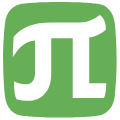
Peter the Great St.Petersburg Polytechnic University
-
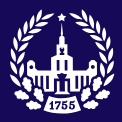
Moscow State University M. V. Lomonosov
-
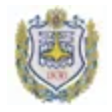
Bauman Moscow State Technical University
-
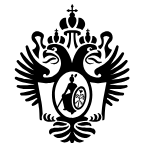
St. Petersburg State University
-
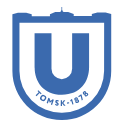
Tomsk State University
-
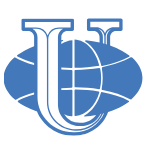
Peoples' Friendship University of Russia
-
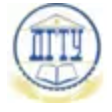
Don State Technical University
-
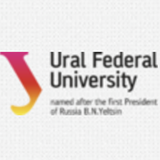
Ural Federal University
-

Moscow Institute of Physics and Technology
-
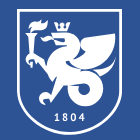
Kazan Federal University
-

Mesoamerican University
-

Istmo University
-

Mariano Galvez University of Guatemala
-

Regional University of Guatemala
-

Galileo University
-

Francisco Marroquín University
-

Rafael Landívar University
-

University of the Valley of Guatemala
-

University of San Carlos of Guatemala
-

Technological Institute of Tlaxcala Plateau
-

Golfo University
-

Technological University of South Sonora
-

Technological University of Huejotzingo
-

Tizimín Institute of Technology
-

Chilpancingo Institute of Technology

